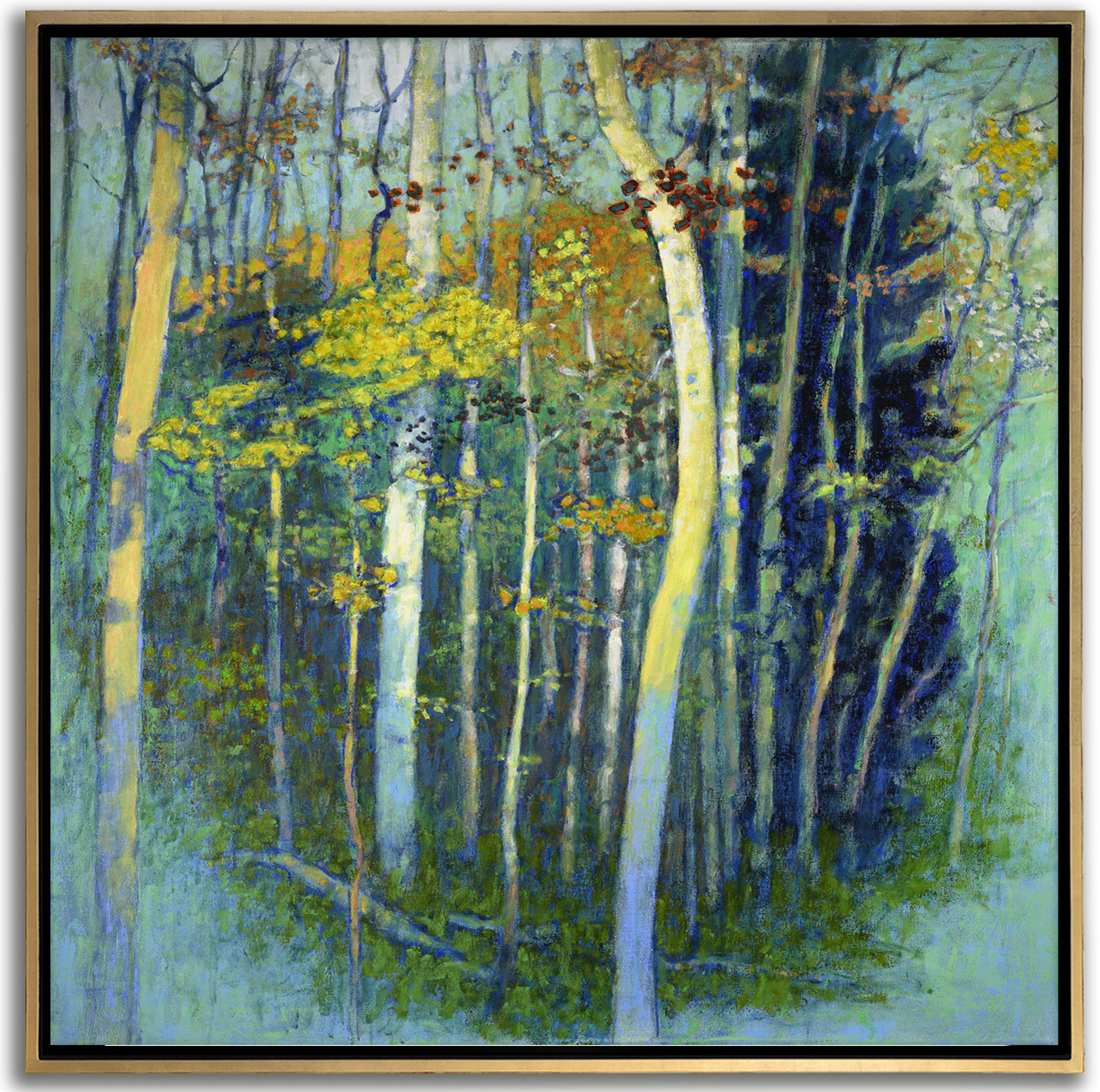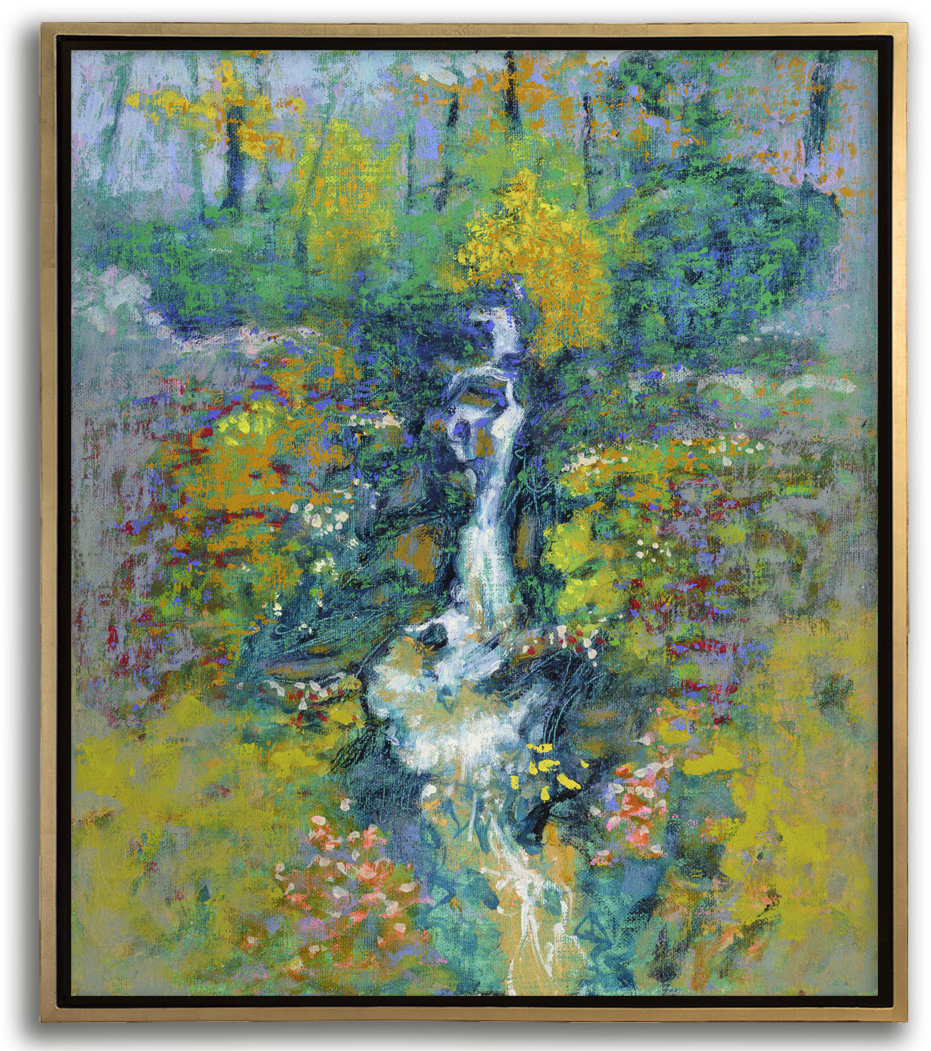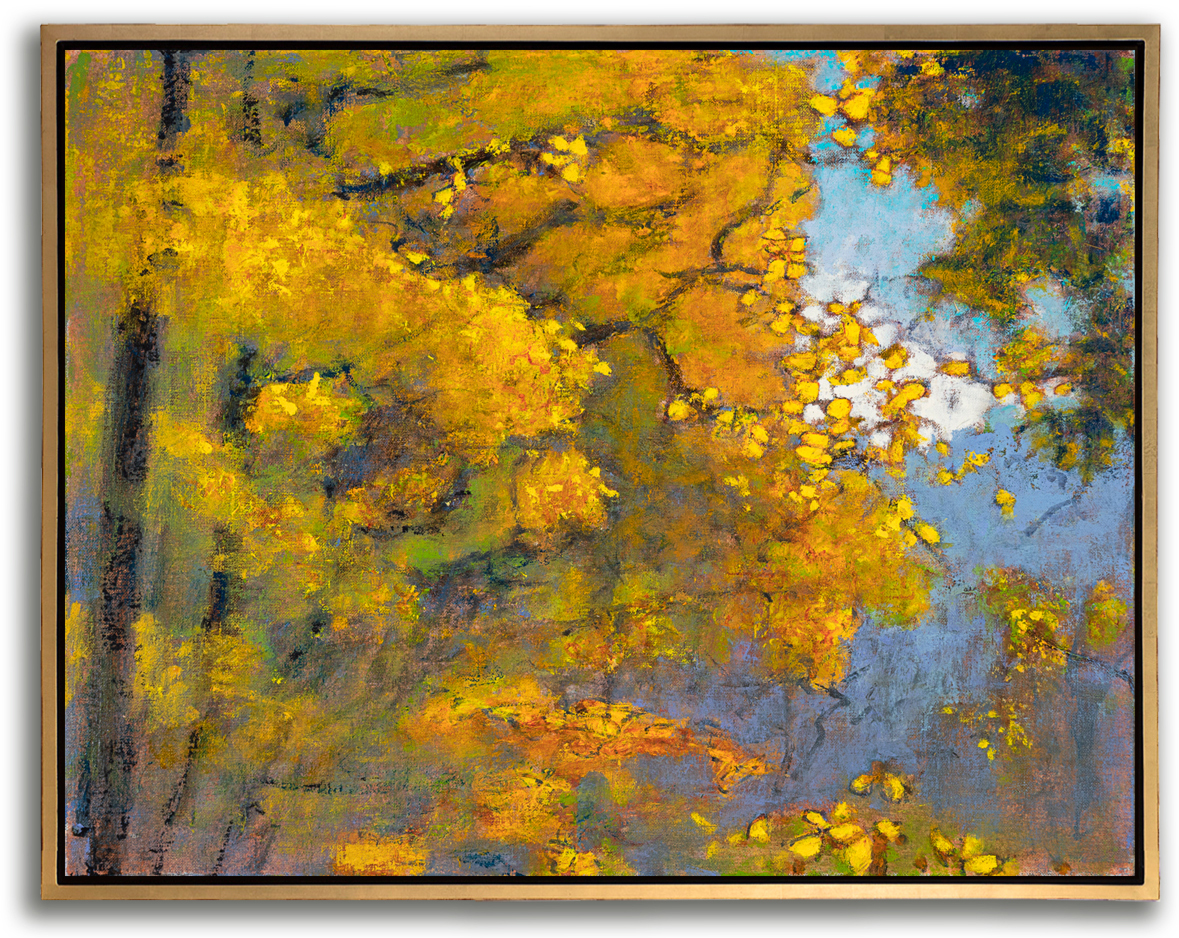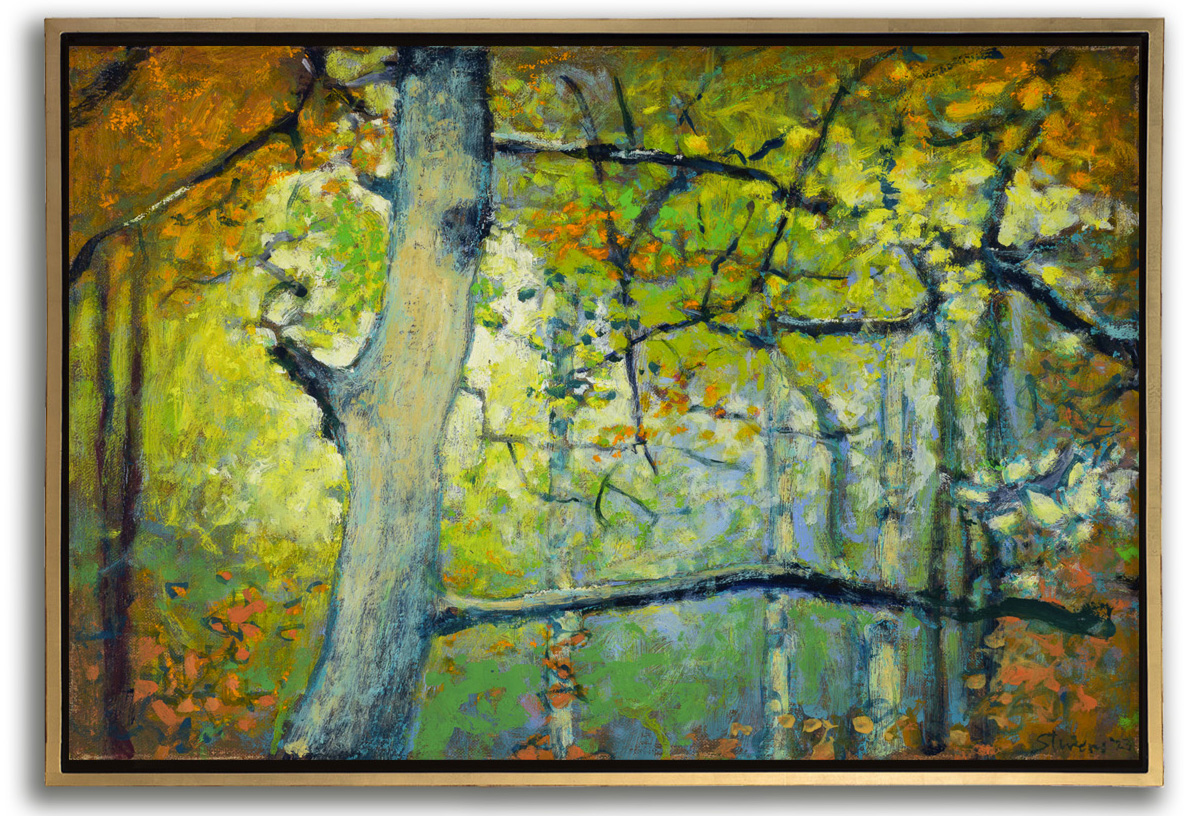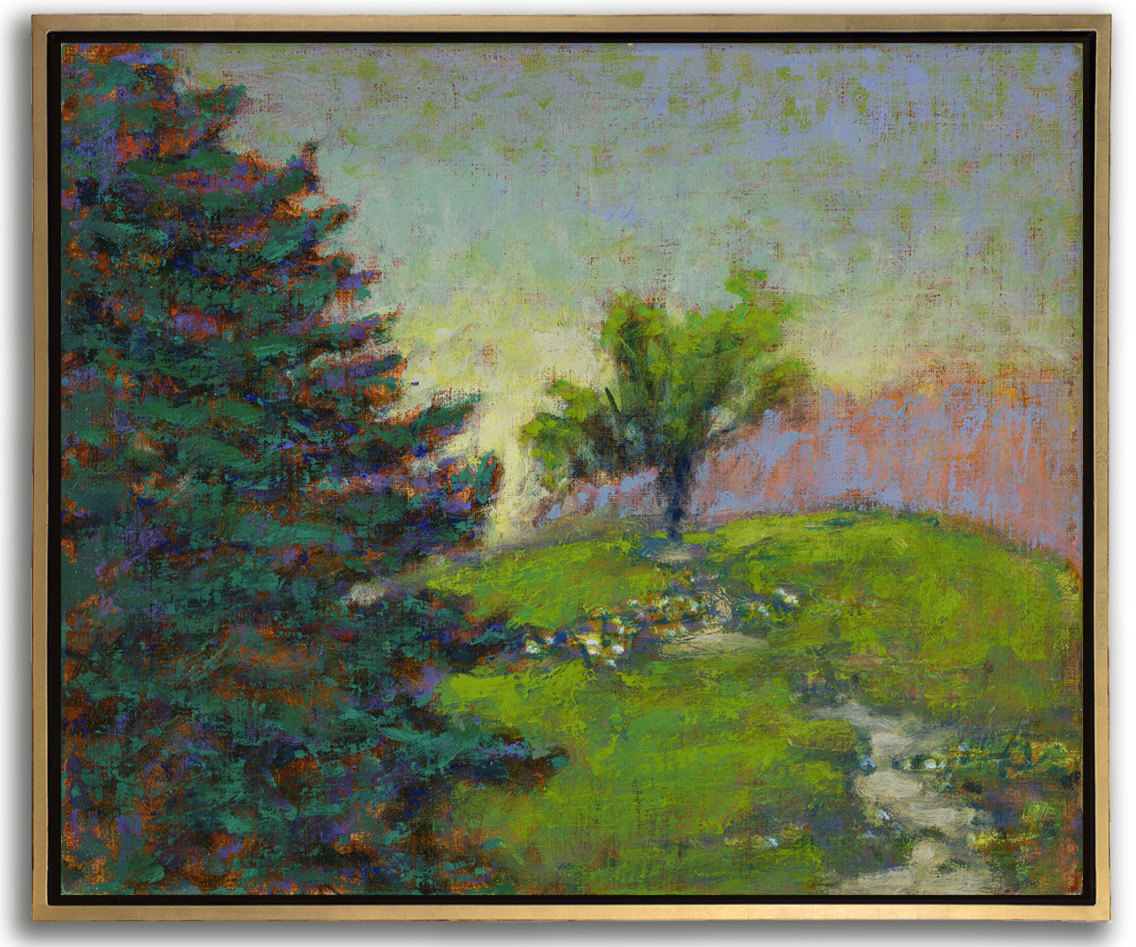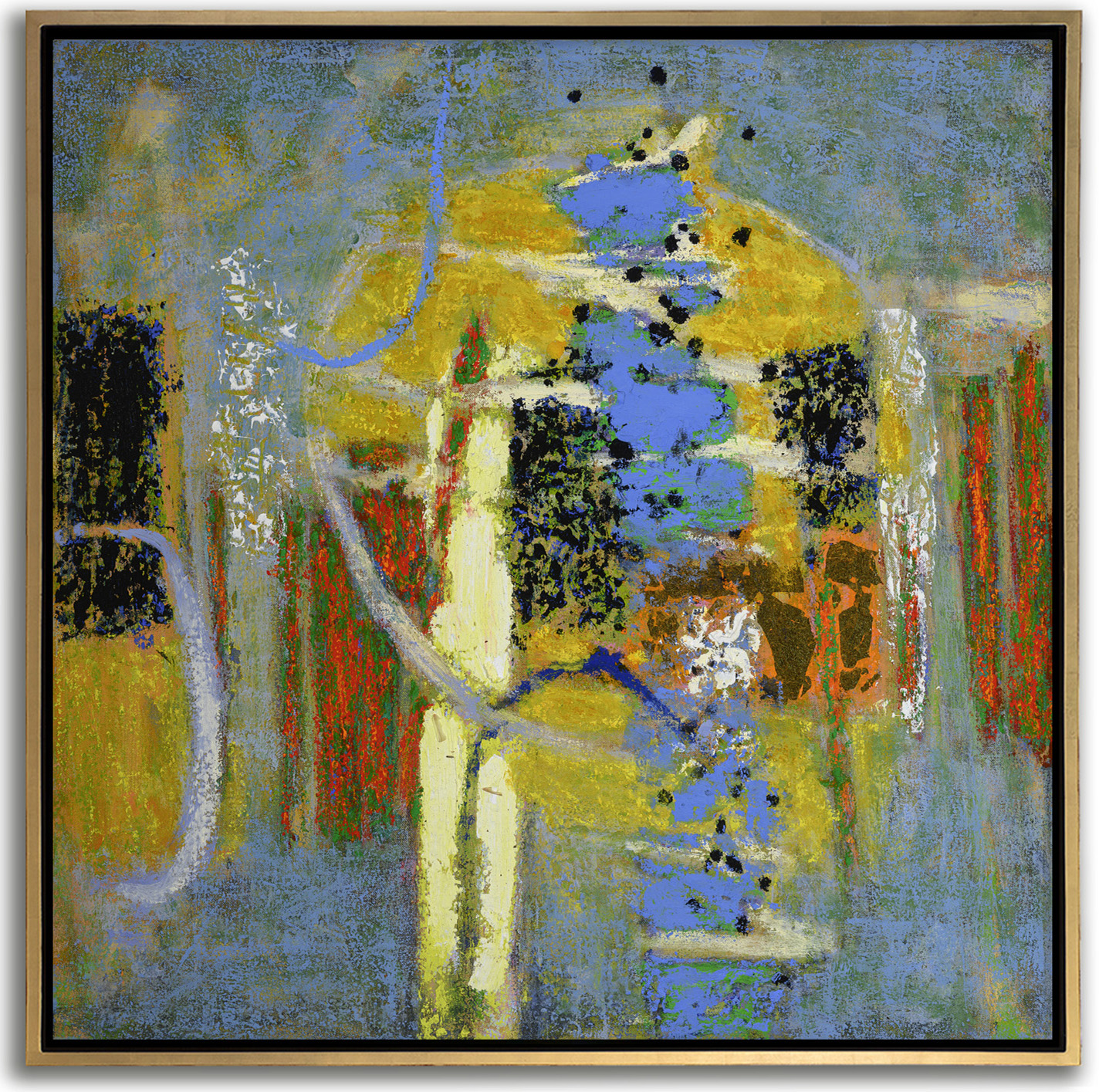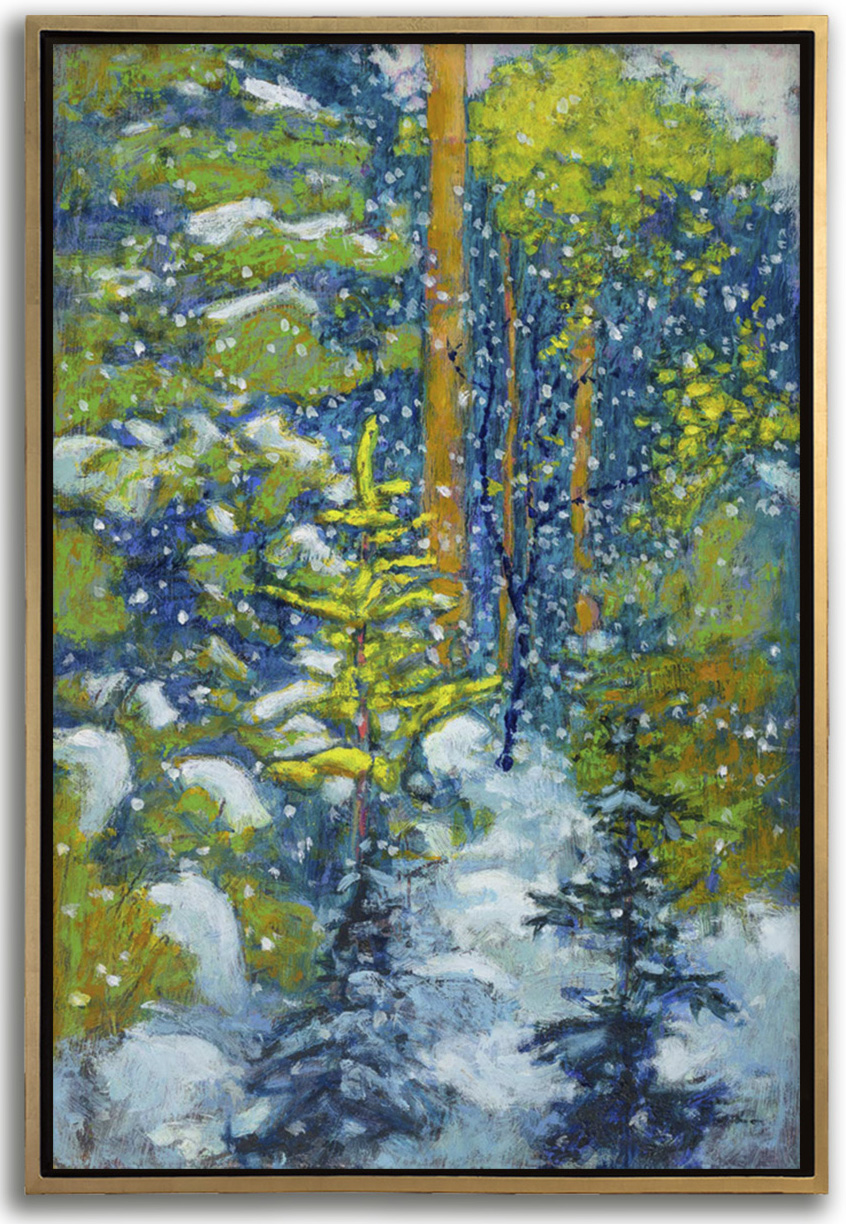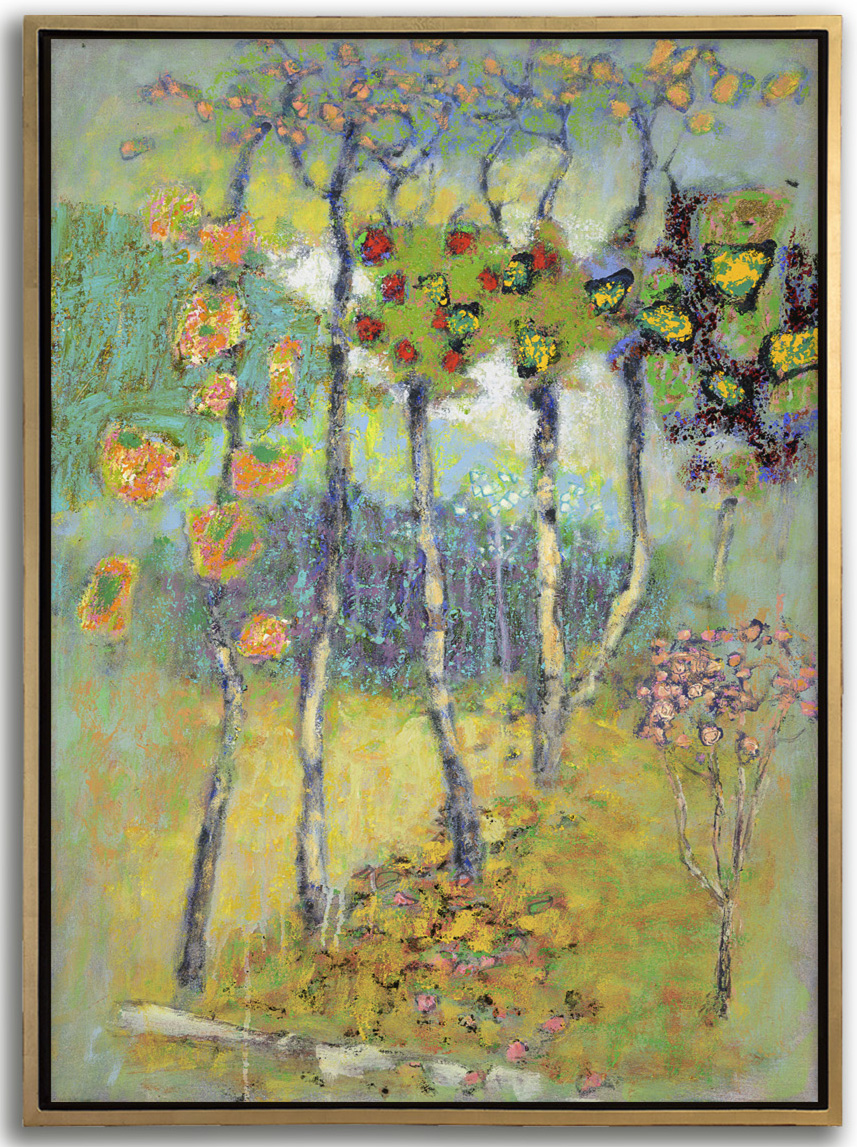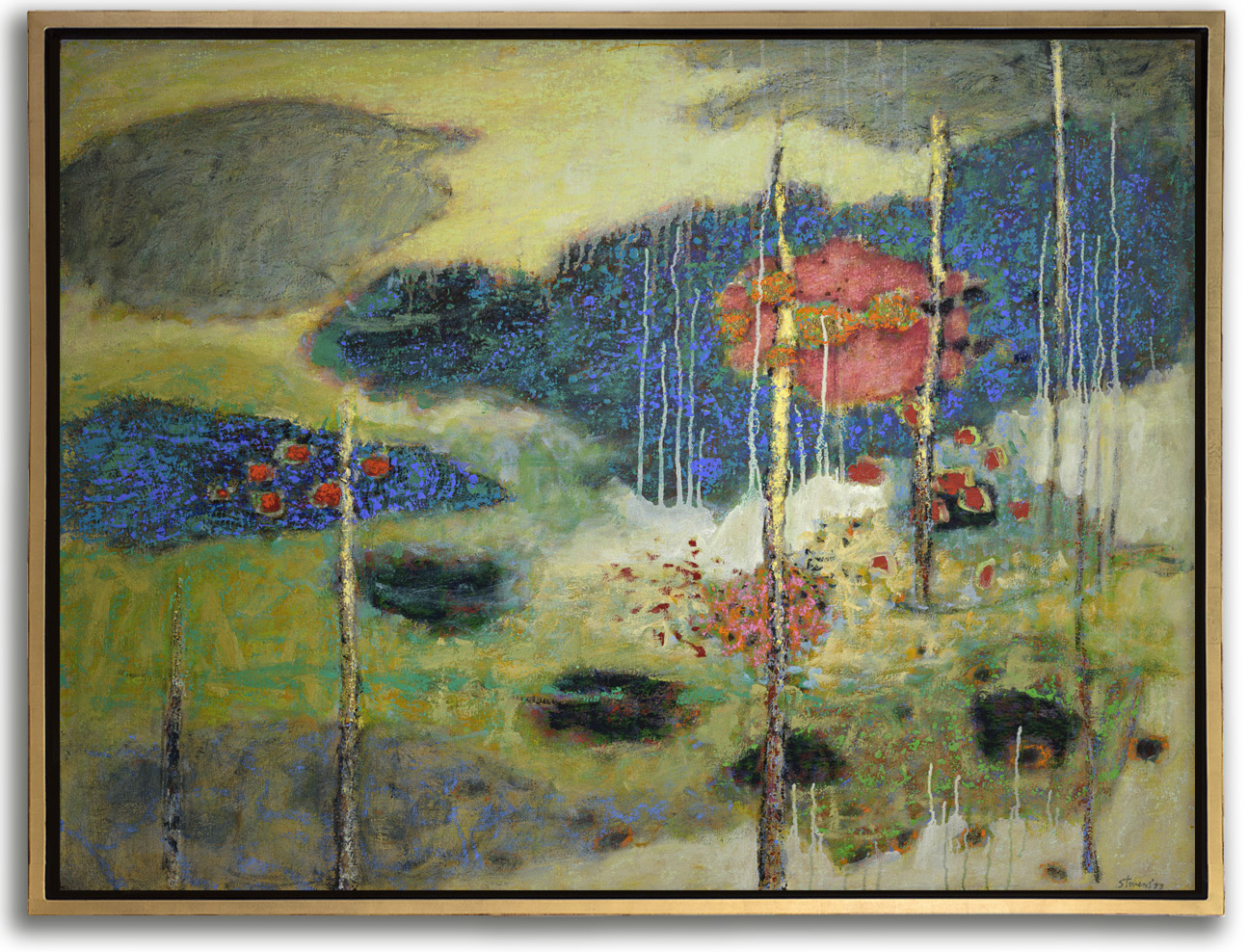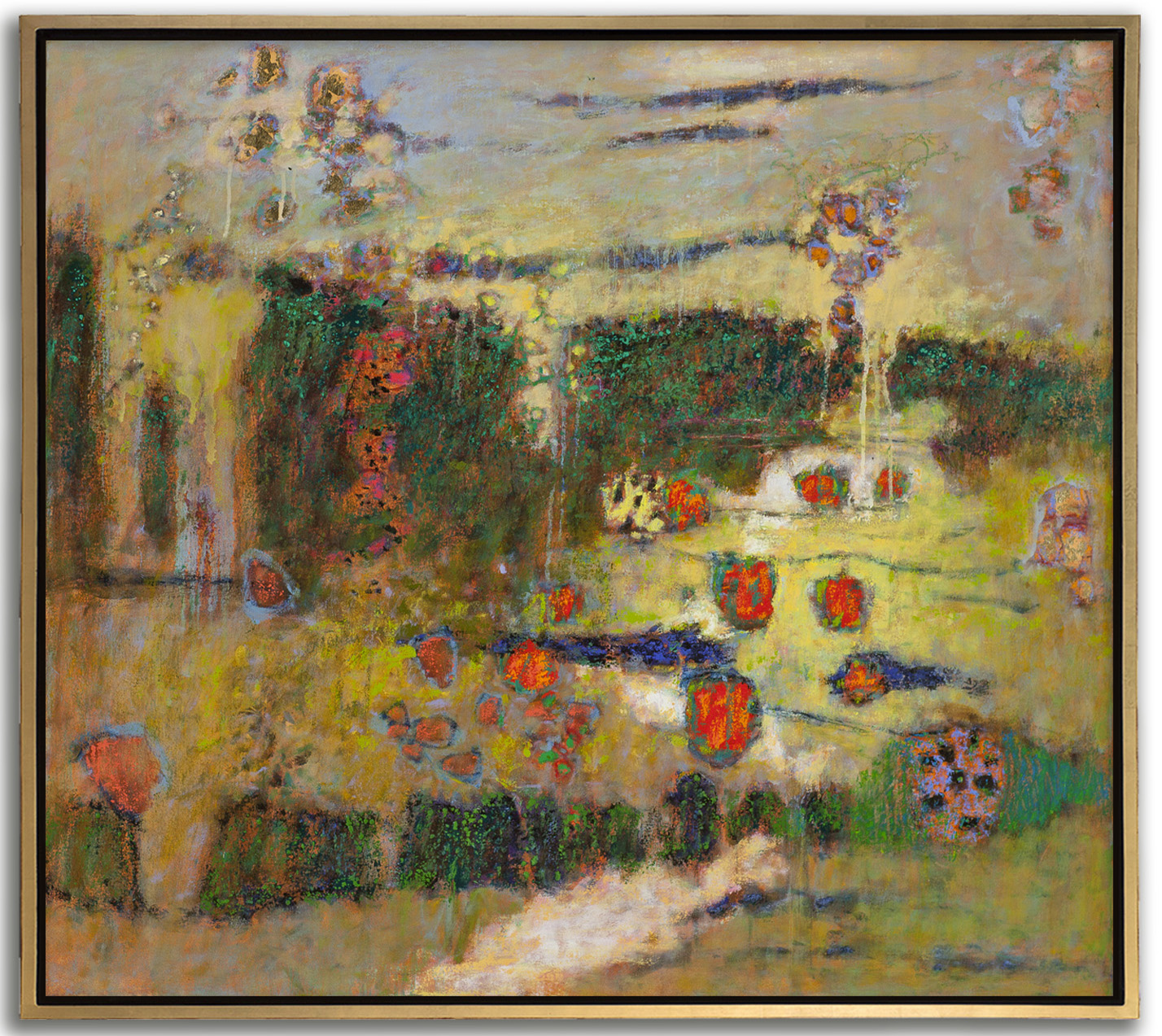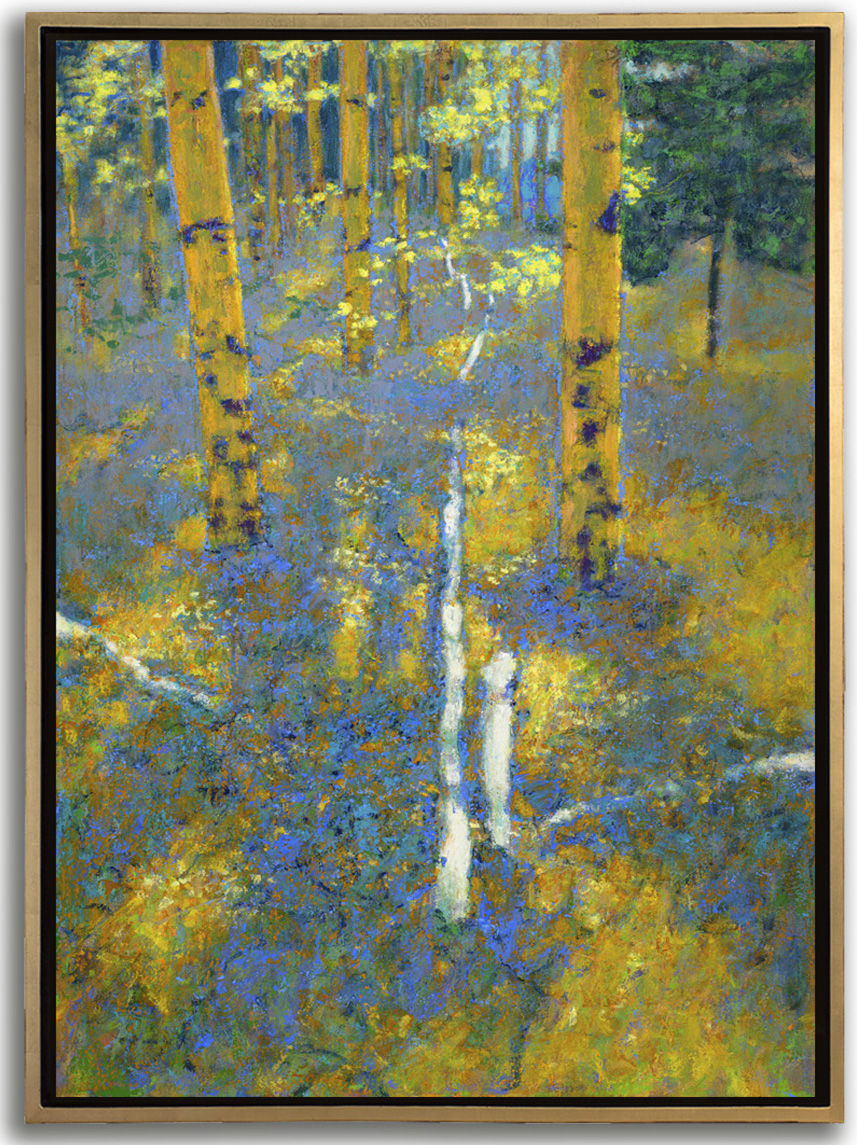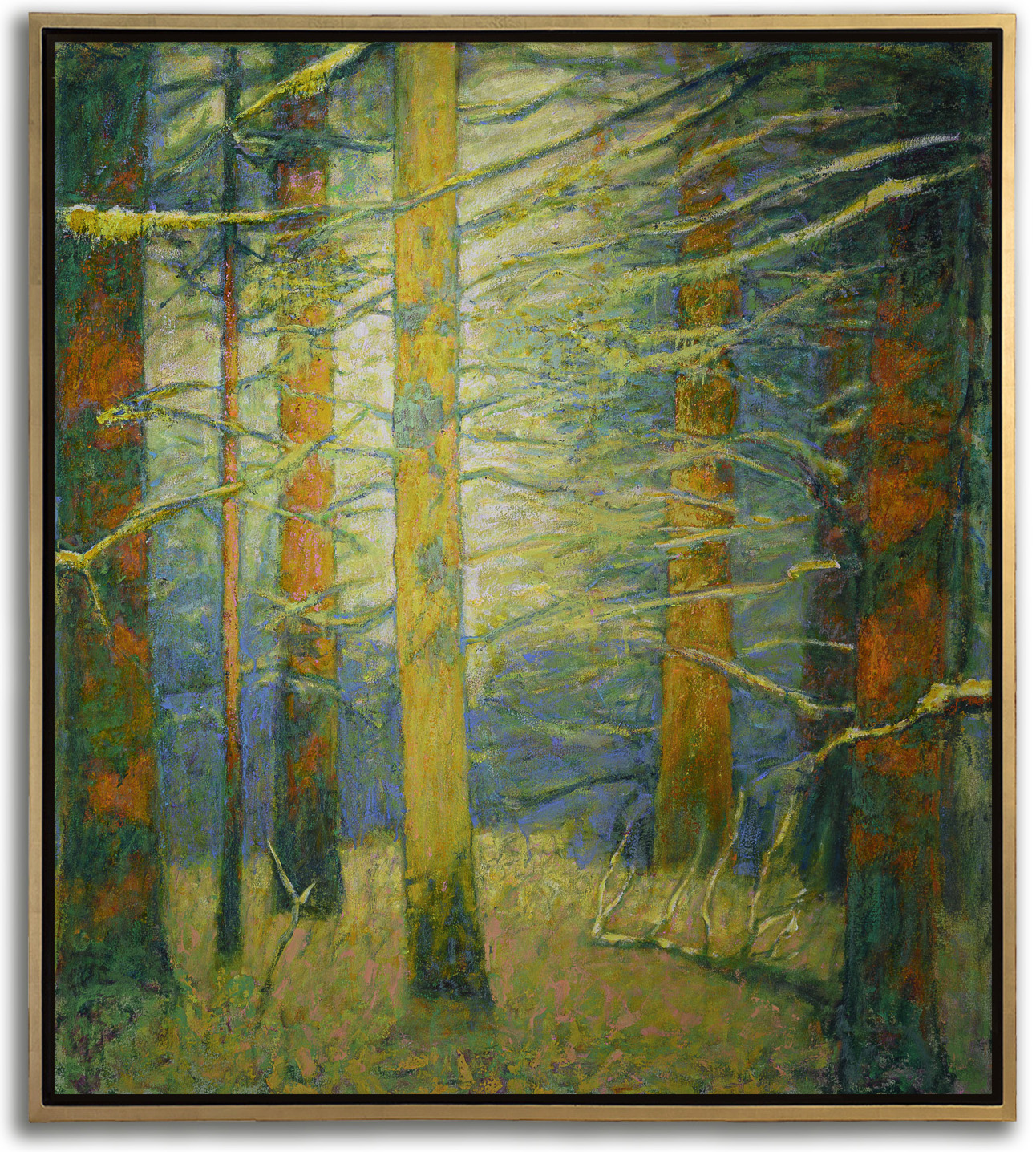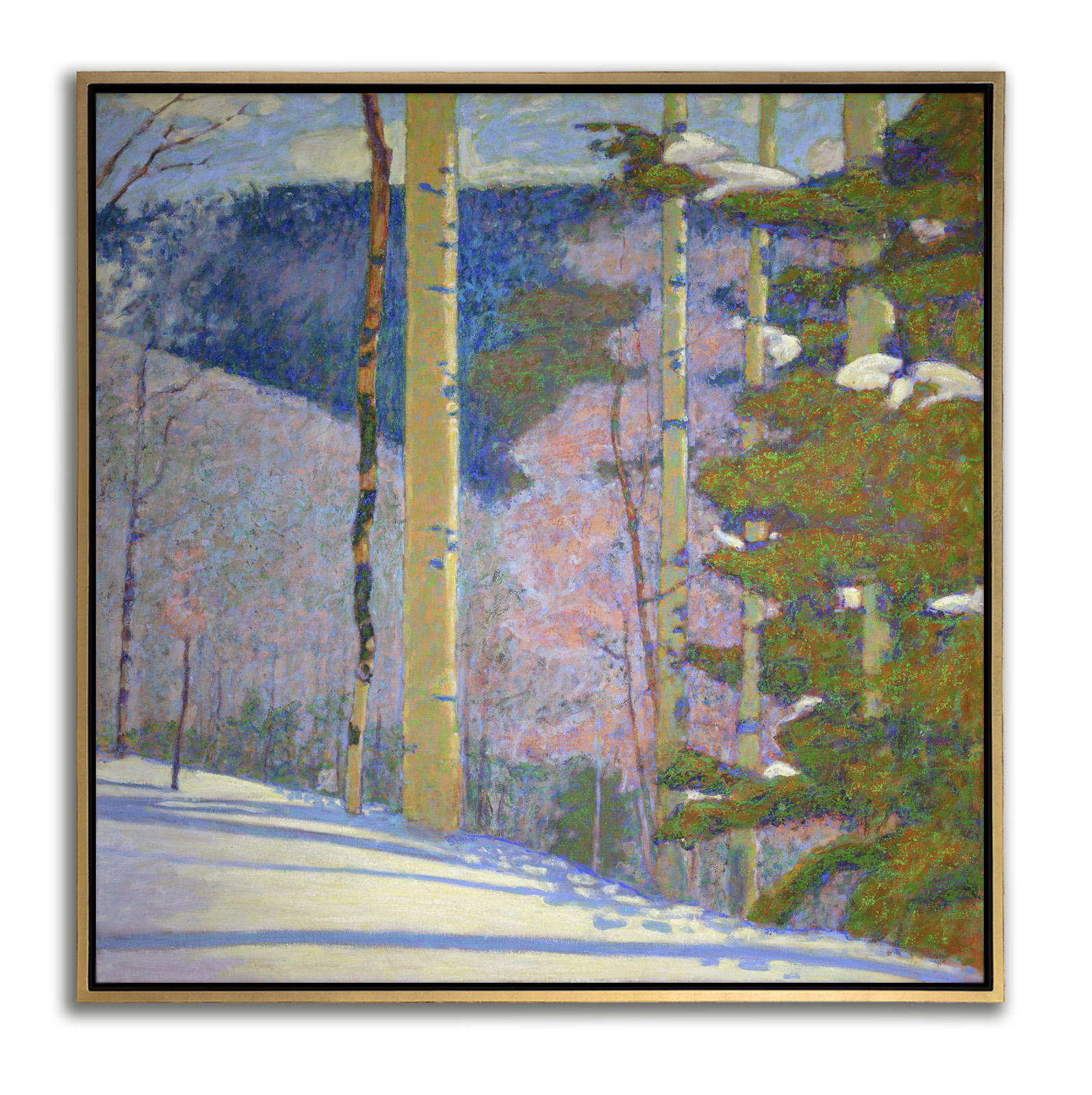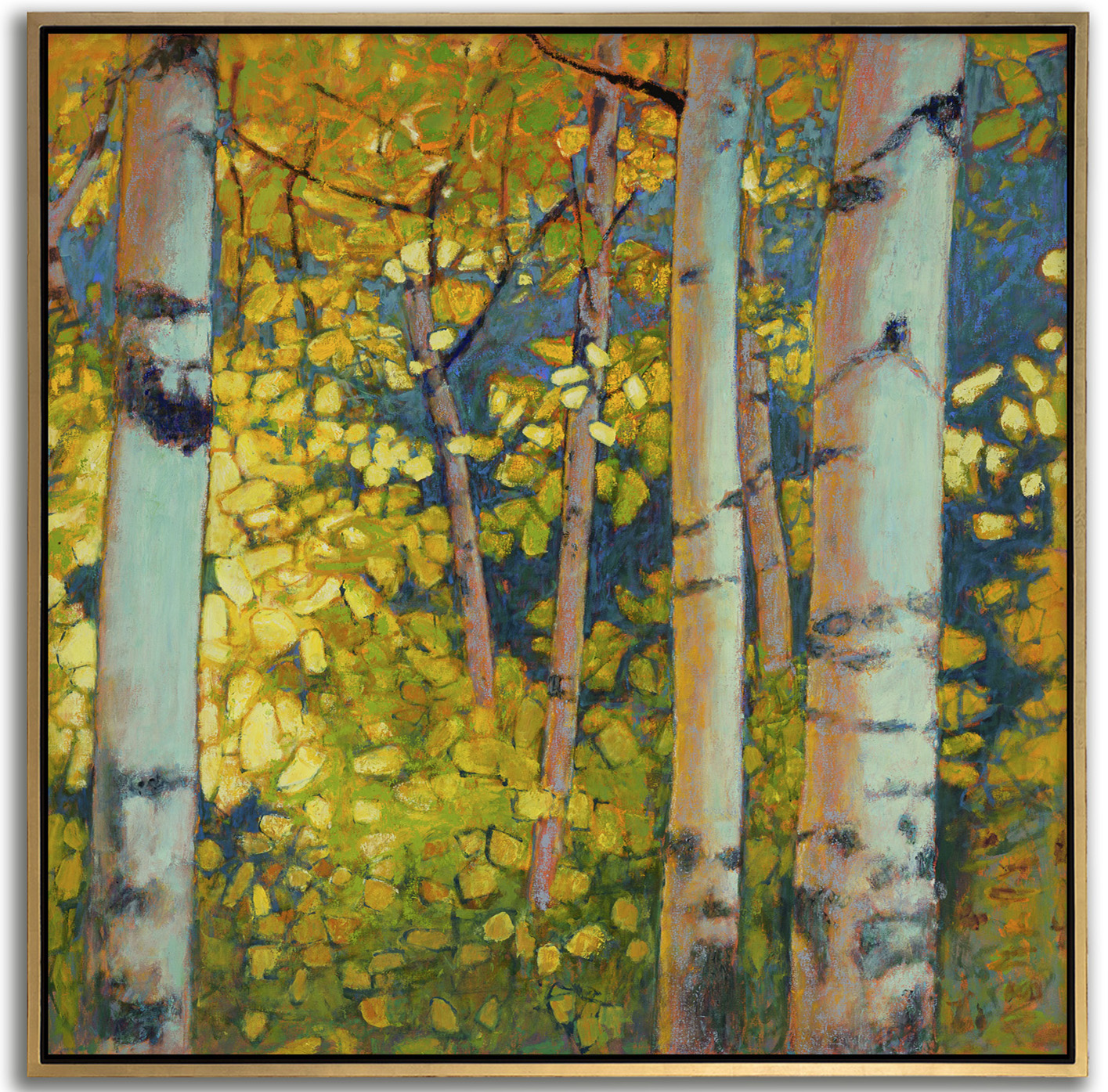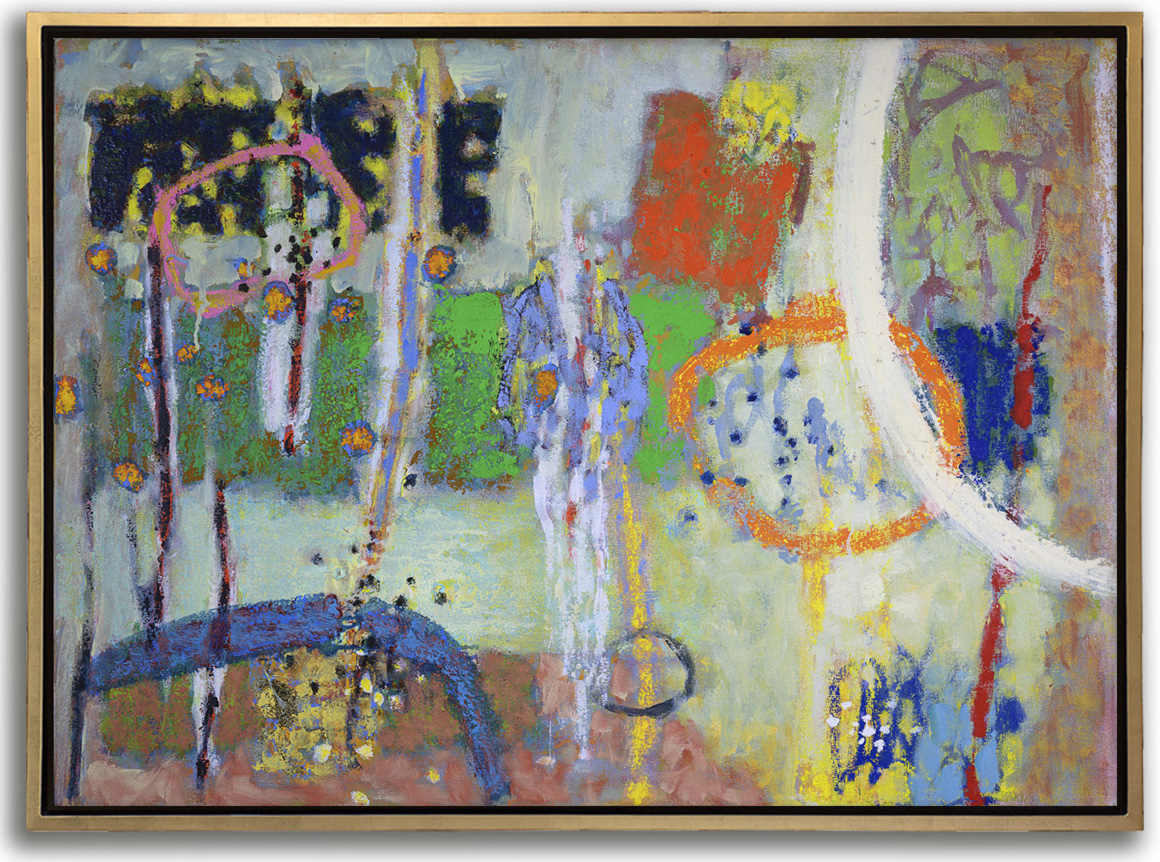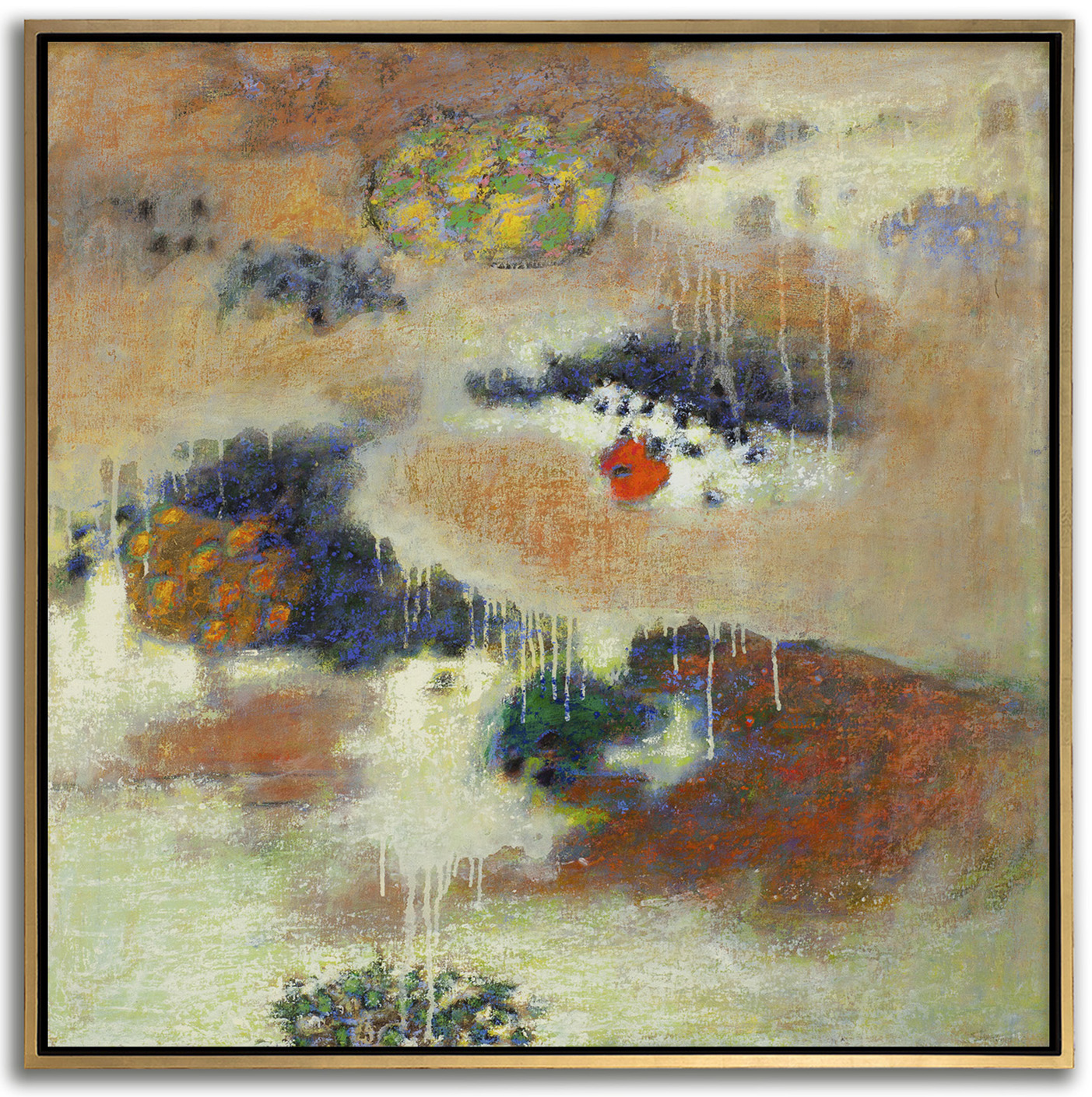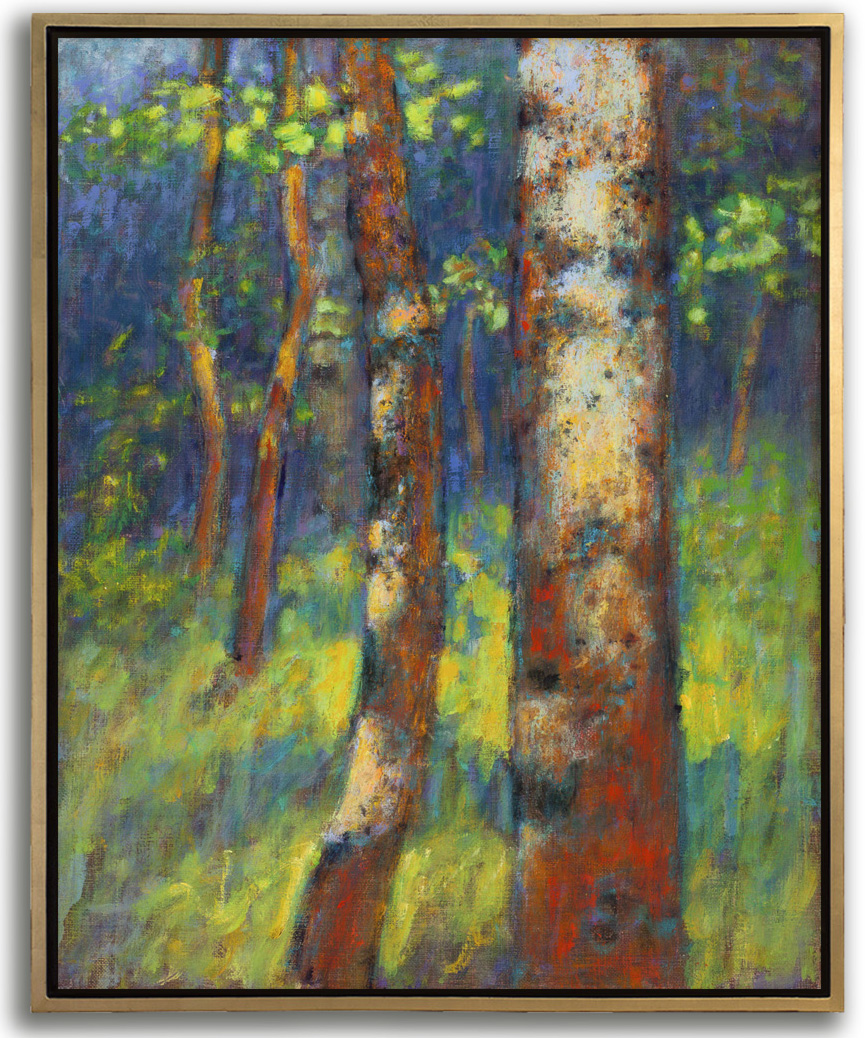Rick Stevens
Rick Stevens’ career as an artist has evolved in much the same way his paintings do. He takes his inspiration from the natural world in all its sublime mystery, then surrenders to that mystery to let the unseen forces of nature guide his hand—and his life. This intuitive process creates room for those serendipitous moments that emerge only when the chattering of the conscious mind is stilled, allowing him to proceed with his life and work in an atmosphere of quiet joy and reverence.

My work may be seen as an open window to other realms. My visual vocabulary has evolved from years of painting the landscape and abstracting it, often taking it outside of what might be considered “landscape”. I think of nature as a continuous flow of shapes and patterns of energy that has, or more precisely is, an intelligent force. There has been a resurgence in the field of science (especially in physics) has common ground with the domain of mystics. Matter and energy are interchangeable, all the forces and particles in nature are one, just different ripples on the ocean of consciousness: a Unified Field. While such expansive ideas inspire my work, I am in no way attempting to illustrate any theories, scientific or otherwise.
My process is a journey of exploration of color, light, texture and the poetics of space. Some of the the work has recognizable subject matter, in some it’s not so apparent, but the process and materials can serve as subject. Generally there is a hide and seek with materials and subject matter. Some of the materials I’m using are traditional oils as well as oil bars, often mixing it with cold wax, gold leaf is usually an element somewhere, sand or gauze may be incased in the wax, and cut out shapes of burlap glued to the canvas with gesso. Paradoxically the collaged burlap simultaneously shapes jump forward in space (creating a dramatic foreground/background relationship) while simultaneously drawing attention to the surface (which tends to flatten space). I use gold leaf also to add to the dimensionality, in a very suggestive way.
I have recently returned to plein air painting after ten years of working exclusively in the studio. Some of the works were begun while I was living in Michigan, before relocating to New Mexico in 2008 (bringing with me boxes of unfinished landscape studies). I use the term plein air because I do go out on location and paint from the landscape but usually most of the work is still done in the studio completing them. These landscape studies inform my studio work and vice versa.

